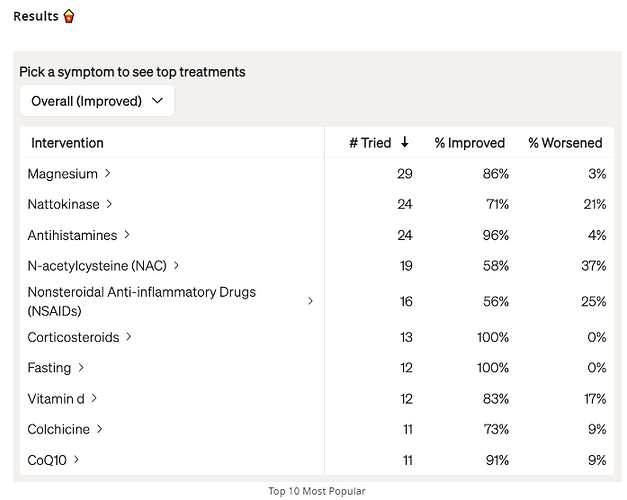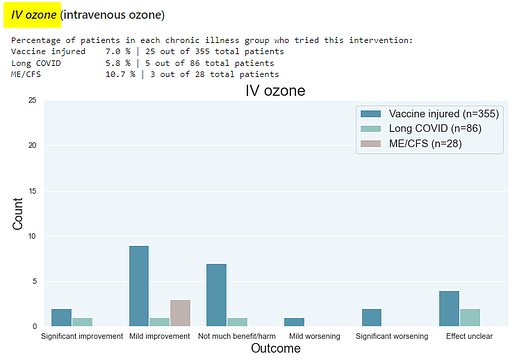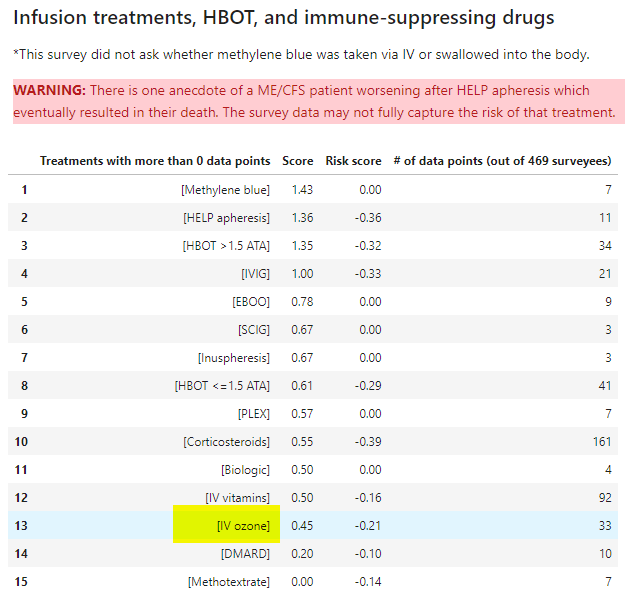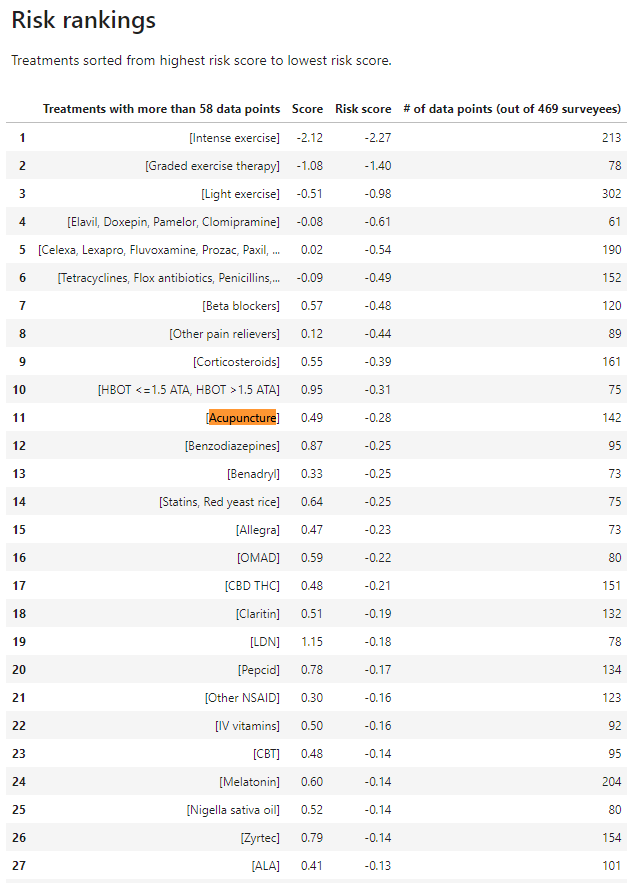It would be awesome if we could rely on the information published in peer-reviewed scientific journals. If it was all true, then there would a long list of treatments that can easily solve Long COVID and post-vax syndrome:
- HBOT*
- Guanfacine and NAC
- Statins* and maraviroc
- Triple anticoag
- ?BC007?
- Immunotherapies like IVIG, corticosteroids, and plasmapheresis.
- Stellate Ganglion block
- INUSpheresis
- Phyto-V
You can find links to the relevant studies here: List of doctors and approaches - Long Haul Wiki
Unfortunately, you will eventually figure out that most of the published studies are reliable. Most of these treatments do not work anywhere as well as the papers claim. You can find a debunking of Avindra Nath’s claims on IVIG and corticosteroids here. He basically said that his patients recovered when they didn’t. ![]()
Among the list of treatments above, perhaps only HBOT and statins are helping some people recover. (*Most people don’t respond to HBOT.)
Patients are unreliable too
If you start reading the support groups, you will quickly start to see that ‘everything works’. Of course, that’s not what’s actually happening.
Here’s some data on the biases in support groups from the Eureka Health thread: Just look at the % Improved column… it shows that everything works in at least 50% of people.
Unfortunately, long haul just isn’t that easy to treat.
The search for data that’s actually reliable
Randomized controlled trials are the most reliable source of data when they are conducted in good faith. While there have been RCTs on multiple treatments like HBOT, leronlimab, rituximab, etc. … only HBOT has panned out so far. I hope that more treatments because proven at the same level.
Another source of data is survey data. A number of different groups are collecting survey data on treatment outcomes. I would argue that I am doing the most to avoid the ‘everything works’ problem.
So that’s what I do on my Odysee channel:
There’s also raw data for treatments where sample sizes are too low to draw reliable conclusions from. Or, the results aren’t that interesting. But you can check out the data in case you’re interested in less popular treatments like ALA, NAC, etc.
How to use longhaulwiki.com/treatment-outcomes/ (data on over 100 treatments)
Hit Crtl+F or the search function on your browser. On iPhone/Safari, press and hold somewhere on the screen. Then go into “Find Selection”. Type in what you want to search for.
Let’s suppose that you search for intravenous ozone. Keep clicking down/next until you find text in italics with another way of saying that treatment. In this case you will find IV ozone.
Search for that phrase or word instead. You’ll find all the analysis relevant to that treatment. For example, here’s one section for IV ozone:
If you don’t know what’s going on this analysis page, go see the November overview video on the data on treatment. In this case, it happens that IV ozone is not rated that highly by patients (see the Score column).
The data is not too exciting because of small sample sizes. However, you can find treatments that may be riskier than you might think. For example, acupuncture shows up at #11 out of the 56 most popular treatments.
Participate in the current survey
To help all of us get reliable data on what’s working and what’s not, please contribute your data to the current survey:
As people try more and more treatments, we’ll build up a more reliable data set. And hopefully the researchers will also publish results from randomized controlled trials, which can give data that’s more reliable than survey data.
Let’s keep our heads up and push forward.
![]()



